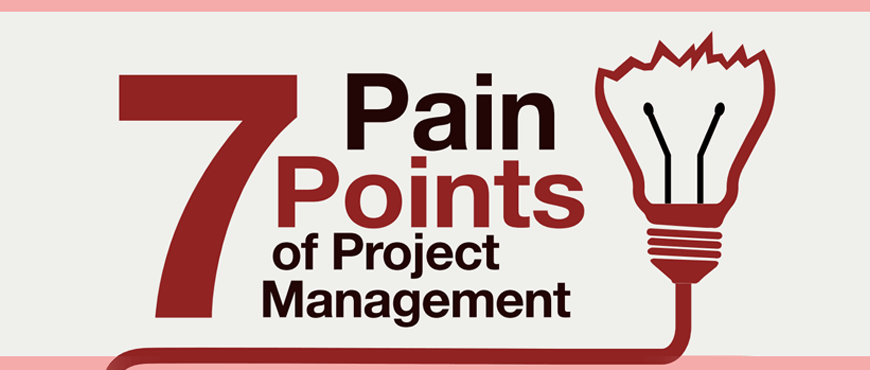This post was contributed by Fred Mouawad to HR.BLR on 06/03/2014.
Starting up a functioning organization has never been so easy. Gone are the days when a team consisted of a group of individuals working all together locally with every activity being closely monitored by supervisors. The Internet has made the outsourcing of various traditional business practices a much simpler process than could have ever been imagined. And while this means that a more diverse group of talented individuals can be engaged to work on projects remotely, the challenges faced by a project manager are still the same.
Managing a team, especially a remote team, requires a project manager to start developing an arsenal of management tools to help them cope with these core issues. An online collaboration service platform, can be a secret weapon in this arsenal that can work on several fronts to help a manager use his or her time more efficiently and effectively fight the “7 Pain Points of Project Management” that all teams face. These pain points are outlined below.
Pain Point 1: Organization
This is half the battle. Organization is often the most time-consuming part of a manager’s work life. Planning, delegating and keeping track of delegated tasks are essential to getting things done in an orderly manner. Once these processes are set however, a manager is able to concentrate on other responsibilities.
Pain Point 2: Accountability
Deciding who is responsible for what can be a difficult task for a manager, especially when there are multiple individuals working on accomplishing the same task. Accountability needs to be established clearly and without any opportunity for misunderstanding, so that all parties involved are prepared to take on the exact responsibilities given to them.
Pain Point 3: Consolidation
Being able to see everything pertaining to a given activity in one place can be a great advantage. Having a single location where all information is consolidated can help a manager keep track of delegated tasks, access all version of a task or project and inform all participants of changes at the same time.
Pain Point 4: Follow-up
If a manager was expected to remember every task he or she assigned and then to follow it up efficiently, nothing would ever get done. Writing things down and email threads are a better way of going about the follow-up process, but consolidation can be time-consuming when errant tasks suddenly become urgent.
Pain Point 5: Evaluation
Providing valuable feedback is a key responsibility that a project manager must take head on. There’s no way a manager can do this if there isn’t an established set of practices to collect and analyze an employee’s performance.
Pain Point 6: Visibility
In a traditional setting, employees are not privy to the information that is being used to evaluate their performance. This can be an inefficient way of facilitating continuous improvement, as employees do not know what they are doing wrong and what they can do to improve their performance.
Pain Point 7: Feedback
Managers must then take on the charge of providing quality feedback. Good feedback must be fair, clear and preferably done face to face. Tact and finesse must be used in the case of employees showing a lack of improvement and be encouraging when reinforcing the good performance of others.
Setting good management practices into place can help to surpass the pain points of being a project manager. Incorporating technology in your methodology is an efficient way to doing this. A tool like Taskworld can be used as a way to set up processes for effective for delegation and performance tracking to improve transparency and establish a continuous feedback loop within a team.





0 Comments